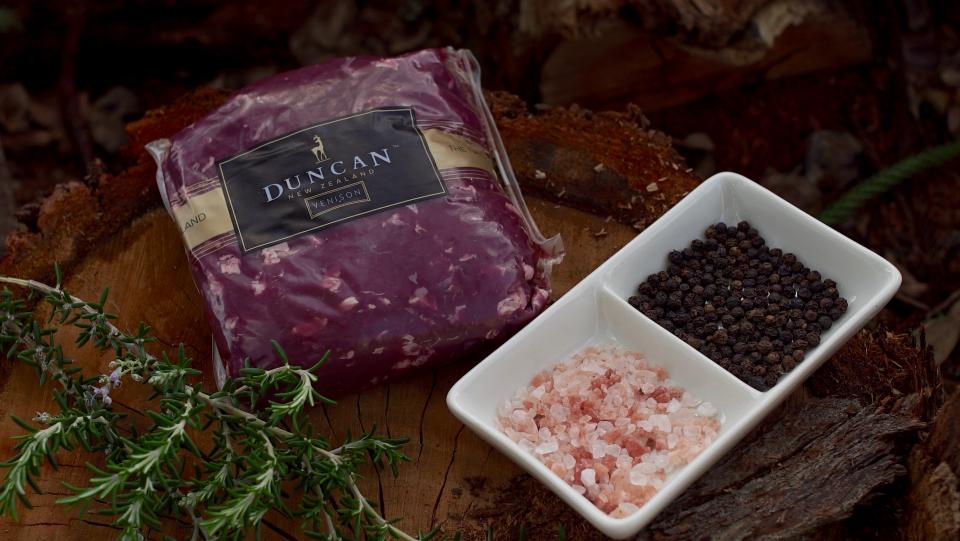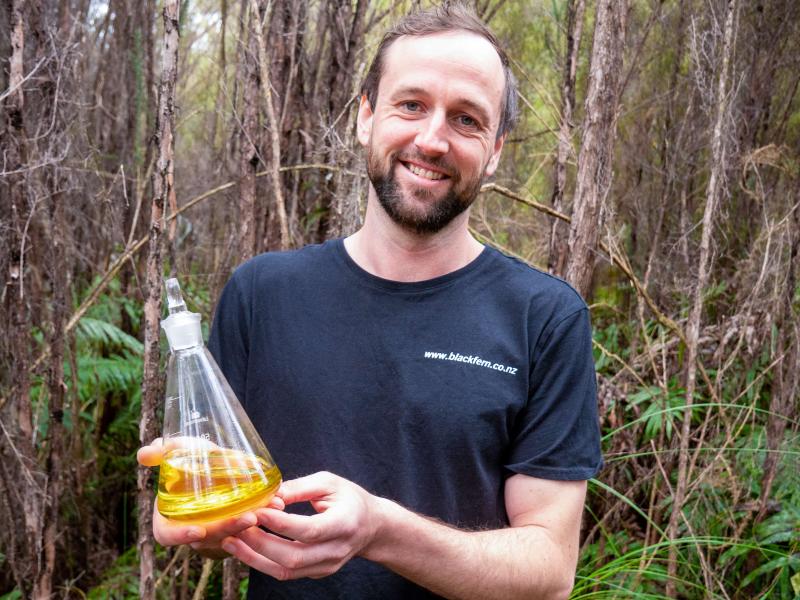Venison’s rising popularity worldwide is helping fuel export demand for premium New Zealand product. Andy and Vinnie Duncan have been in the venison business for 26 years and are excited by recent market developments.
By Glenn Baker.
Venison is in hot demand.
Vinnie Duncan, who with husband Andy, owns Duncan NZ believes recognition of the health and taste benefits of the low-fat, protein-packed red meat has a lot to do with its rising year-round popularity in both local and export markets.
“New cuts like the Bistro Fillet, which we developed with a team of chefs earlier this year, are proving very popular,” says Vinnie. “We feel it’s important to create more options for customers, including product that is easier to prepare and cook, while still providing a high quality eating experience.”
“The fact that more restaurants are using venison year-round has also had an impact, along with the use of venison cuts on shows like Masterchef,” adds Vinnie.
“Food trends kicked off by professional chefs tend to filter down into the shopping habits of consumers. That is likely to be one of the reasons we’ve seen an increase in interest from the public.”
Vinnie and Andy have seen many changes within the venison industry since they first set up business in 1989, in particular around its export.
“Before Duncan NZ, Andy was involved for several years in the early implementation of venison as a New Zealand export produce item, which enabled experience and know-how to be developed,” explains Vinnie.
“Right from the days of capturing live deer to enable the start of farming, the potential of New Zealand farmed venison as a staple protein item has been evident.
“At start-up we were purchasing cartoned product only, although that soon moved to a direct supplier and toll processing arrangement, as demand was consistent and New Zealand farmed venison clearly had real potential.”
Vinnie says their goal of providing premium New Zealand farmed venison to offshore consumer markets has always been a focus.
“As we grew, a change to owning a plant meant that we could have an integrated business model from supply chain right through to market, allowing us to apply consistent standards and processes all the way through that model,” she says.
Being involved in the industry from its beginning means Duncan NZ is continually focused on adding value, developing new and innovative products, building premium markets offshore, and providing high quality service in every aspect of the business, adds Vinnie.
“Building strong relationships, in every part of the business chain, gives strength through the tough times and delivers benefits for everybody through the good times.”
“The potential of the direct-to-consumer model is considerable. The challenge is finding the right mechanism to enable this to happen in a world where consumers have a large amount of daily choice with their purchasing power,” says Vinnie.
“New Zealand farmed venison has traditionally been a hospitality-focused item, distributed by in-market specialists. The expansion of this to the consumer involves a detailed education process, around product knowledge and provenance, as well as preparation methods.
“Discerning consumers today care more than ever about what they are eating – including its nutritional profile and where it has come from – and New Zealand farmed venison ticks all those boxes.”
Perceptions
Vinnie reminds us that in New Zealand farmed venison is now an accepted standard protein and is readily available to the consumer through a variety of retail options including supermarkets.
“Offshore, particularly in Europe, venison traditionally is a seasonal item that is prepared and served over Winter months. Moving from that expectation to cover 12 month supply and demand is an ongoing in-market strategy supported by the New Zealand’s deer industry as a whole,” she says.
“Outside of Europe, there’re several strong markets where price stability and steady growth offer encouragement for the creation of long term sustainability for all participants in the industry.”
Challenges
During their 26 years in business there have been numerous market challenges to test Duncan NZ, however most have been from outside influences.
“The global recession inhibited market growth,” says Vinnie. “Competitor activity can create challenges at times too, both on and offshore, and competing proteins are also always in the mix.”
Vinnie says being able to adapt quickly to market forces and be proactive around innovation has enabled them to survive as a small company in the primary sector.
“Today’s challenges are primarily dealing with a supply shortage – a result of breeding stock being retained for herd expansion,” she explains.
The supply shortage has come just as the market is recognising the strong benefits of New Zealand farmed venison. Demand is up, validating Vinnie and Andy’s hard work on promotion, marketing, and establishing robust processes over all those years.
Lessons and goals
For Duncan NZ strong relationships have been the key to longevity.
“Building strong relationships, in every part of the business chain, gives strength through the tough times and delivers benefits for everybody through the good times,” explains Vinnie. “Hard work, flexibility, establishing and recognising the value of a really good team, and recognising opportunities, have also contributed to our longevity.”
The company’s main export market continues to be the US, which has shown excellent growth and stability over the years, followed closely by other well established markets in Europe, the UK and Asia.
Today’s marketing goal is similar to what it has always been: have New Zealand farmed venison widely recognised by consumers as a regular, healthy, protein option. With the advent of technology, this manifests itself in many different ways, says Vinnie.
“Online sales, or e-commerce, is very relevant, although still quite new for branded meat items, as is delivering the grass-fed, all-natural, free-range message to consumers.
“Along with this we want to ensure that the venison industry goes forward in a stable, ethical manner, to ensure sustainability for all contributors, from grower through to consumer.”





